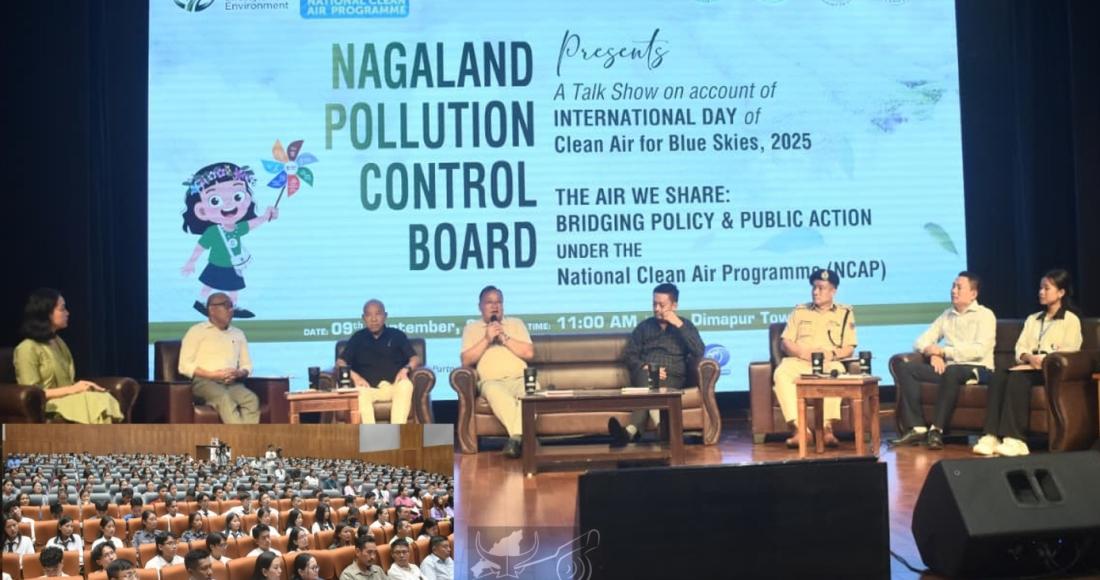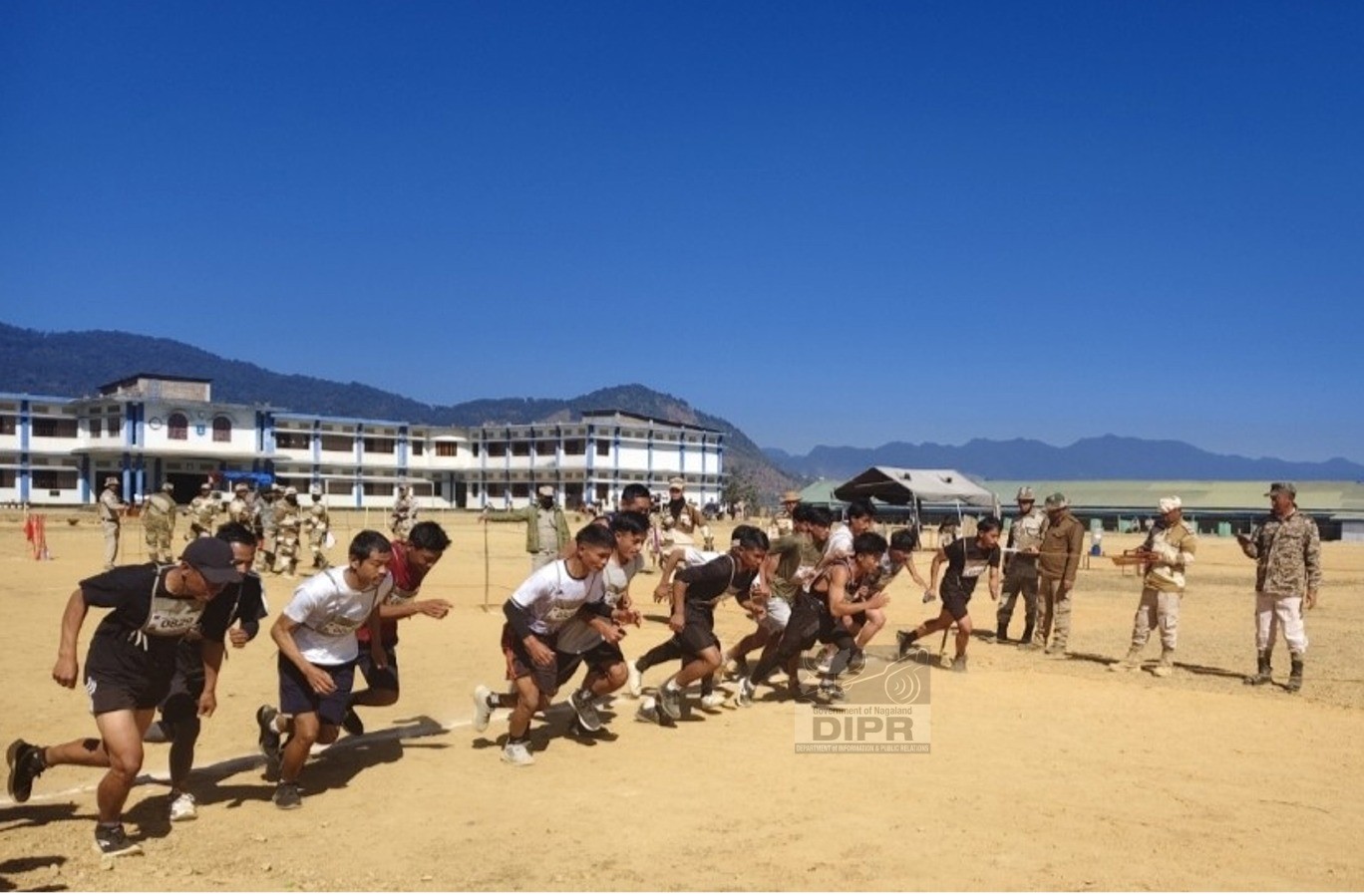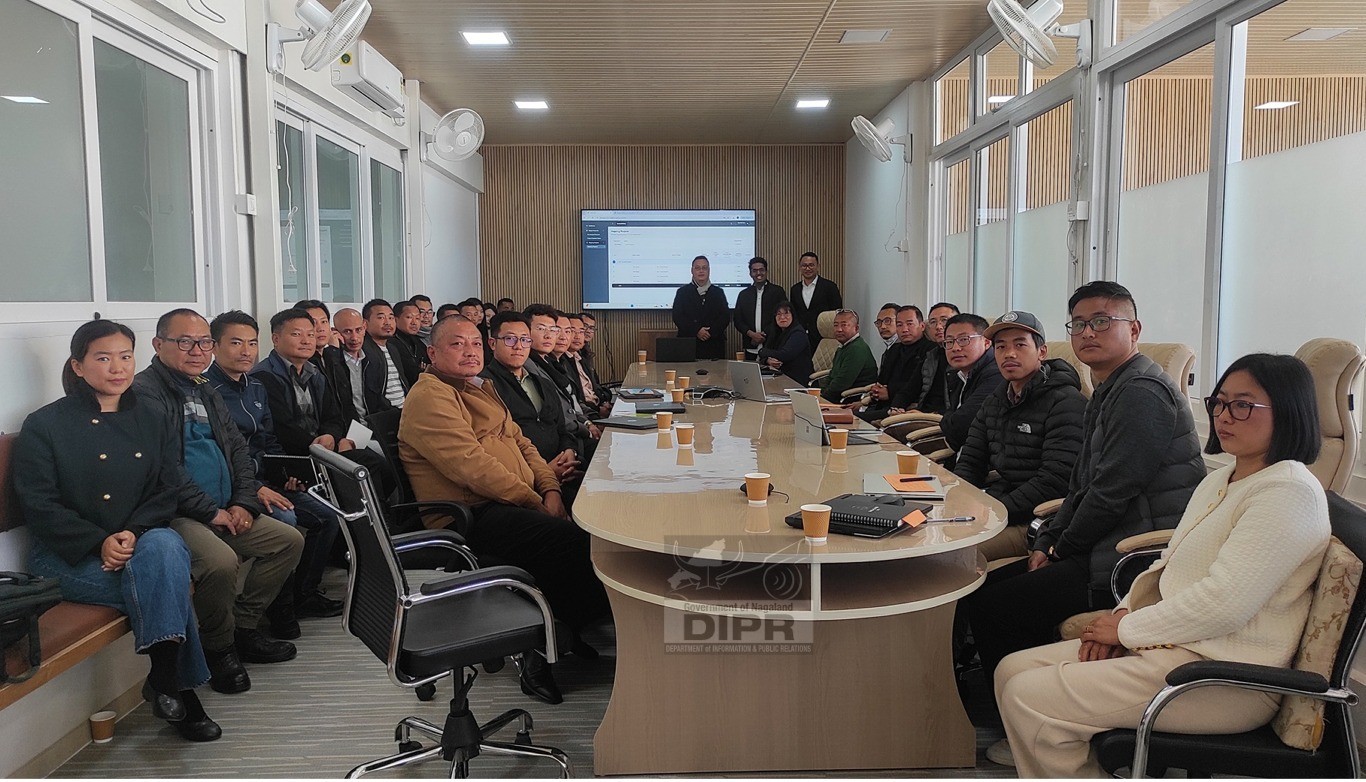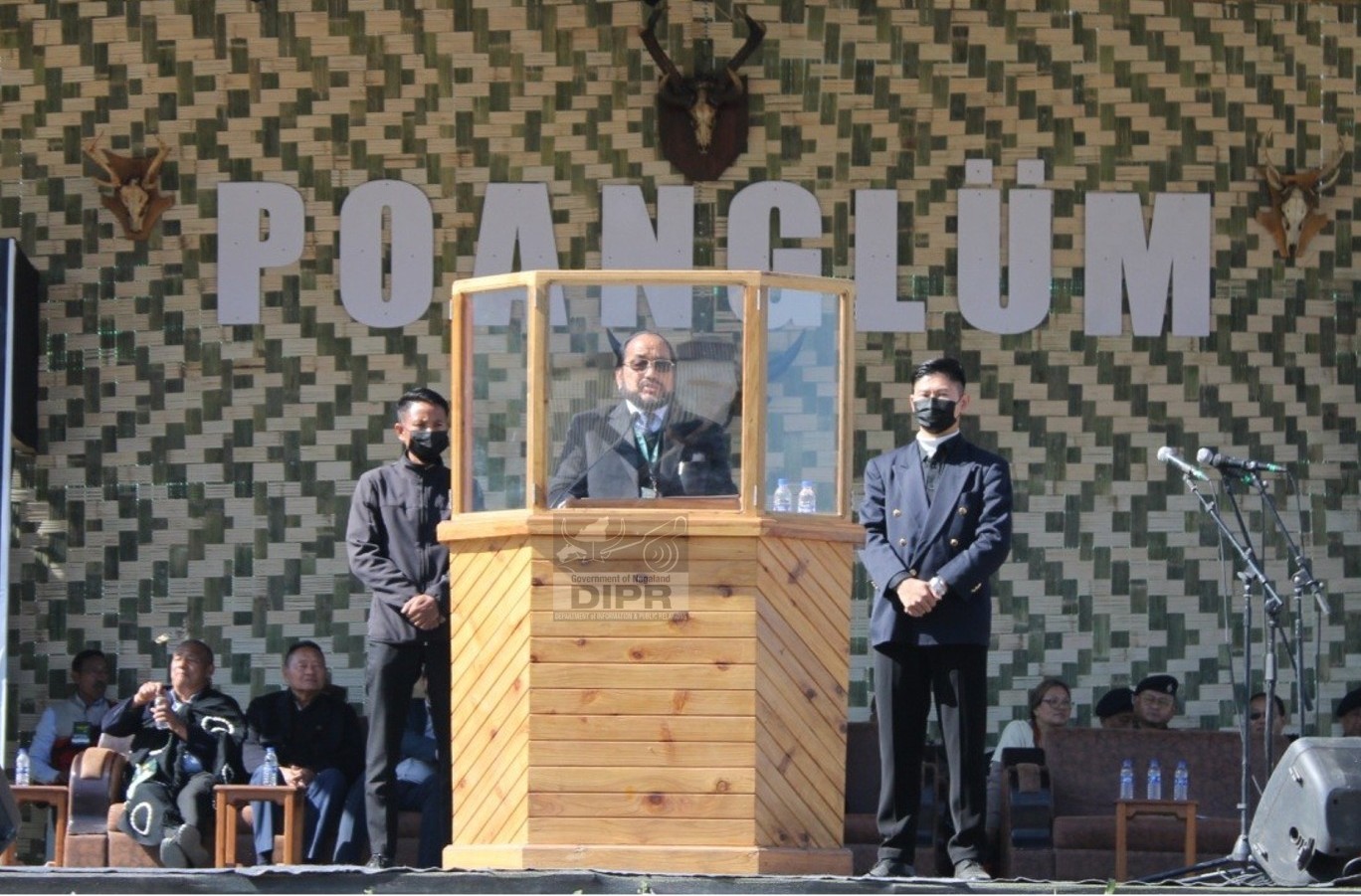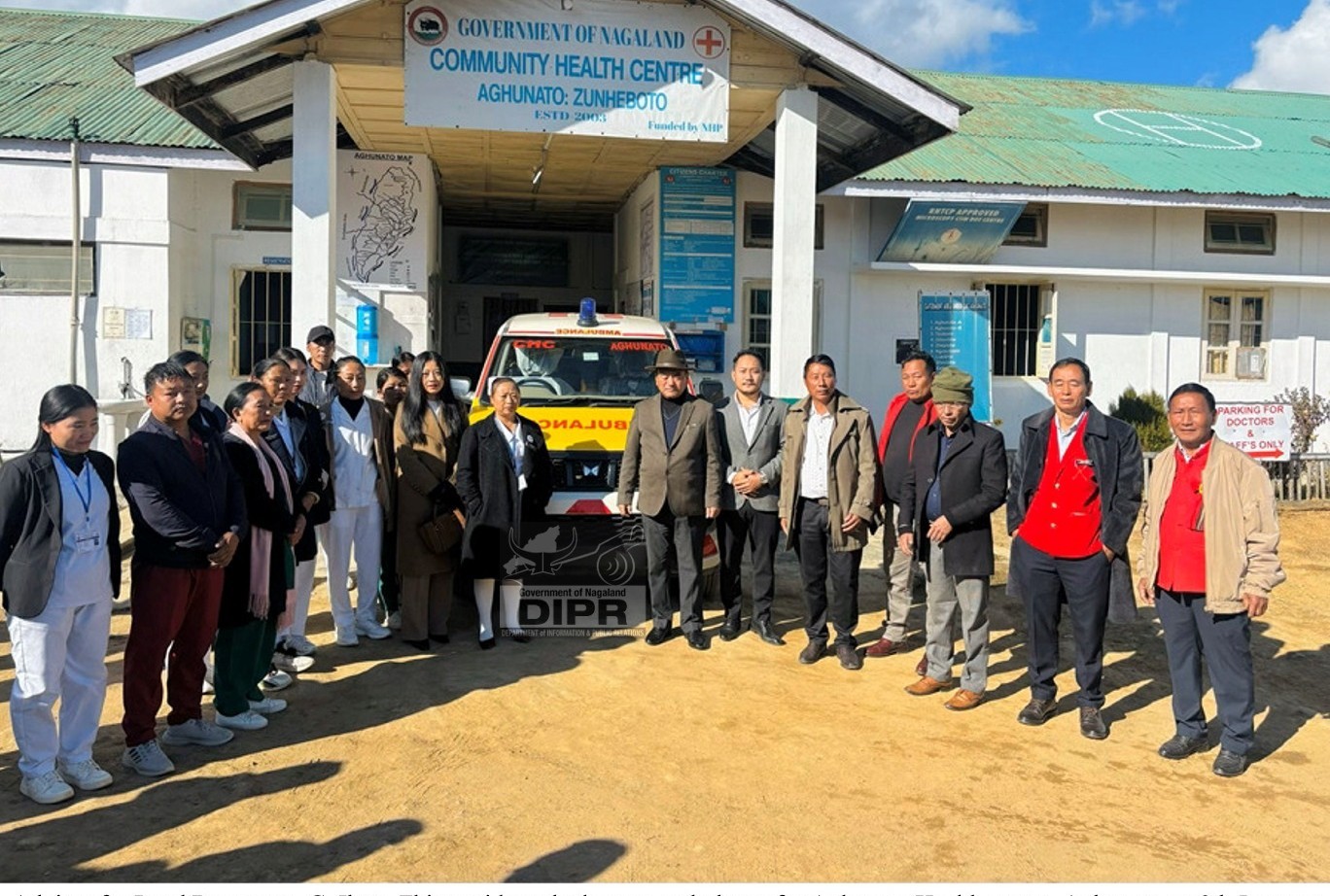The Nagaland Pollution Control Board (NPCB) hosted a talk show, “The Air We Share: Bridging Policy & Public Action”, at Town Hall, Dimapur on 9th September 2025 to mark the International Day of Clean Air for Blue Skies. Policymakers, administrators, civil society representatives, youth and media gathered to discuss local air-quality trends, enforcement challenges and collaborative solutions under the National Clean Air Programme (NCAP).
The programme was chaired by Senior Scientific Assistant, NPCB, Olivi G. Chophy and was moderated by Junior Scientific Assistant, NPCB, Rongsenben Longkumer. The keynote address was delivered by Scientist ‘B’ & Nodal Officer, NCAP, NPCB, Yanathung Kithan. In his address, Kithan highlighted the urgent need to tackle air pollution, describing it as fundamental, invisible, yet essential to life.
Citing the World Health Organization, it was noted that 99% of the world’s population breathes unsafe air, while the Air Quality Life Index Report 2023 estimated that air pollution reduces the life expectancy of an average Indian by 3.5 years. Kithan revealed that Dimapur has been categorised as a non-attainment city by the Central Pollution Control Board, with pollution levels rising by 35% between 2020 and 2024. It was stressed that the National Clean Air Programme (NCAP) targets a 40% reduction by 2026, but achieving this requires collective efforts from government agencies, civil society, youth and the media.
In his remarks, panellist Member Secretary, NPCB & State Nodal Officer, NCAP, Hukato K. Chishi, IFS, presented data highlighting a worsening trend in particulate pollution. He pointed out that Dimapur’s annual average Particulate Matter 2.5 readings have consistently remained above national standards, cautioning that unless urgent measures are taken, public health and the quality of life would continue to deteriorate.
During the discussion, Deputy Commissioner of Dimapur and panel member, Dr. Tinojongshi Chang highlighted how NCAP funds have been used for road repairs, dust suppression and awareness drives. He stressed that enforcement alone was not enough, calling for stronger community ownership in order to achieve long-term results. Echoing this, panellist CEO of Dimapur Municipal Council, Thungchanbemo Tungoe, spoke on the council’s efforts to mitigate localised pollution such as road dust and waste burning. He noted that while DMC has introduced door-to-door collection, road sprinkling and dust-control measures, changing public attitudes, particularly the widespread habit of burning waste, remained a major challenge.
Traffic-related air pollution was addressed by panel member and Deputy Commissioner of Police (Traffic), I. Meren Chenthi, who explained measures such as one-way systems, stricter parking enforcement, and an auto-rickshaw display card system to regulate vehicle movement. He further informed that traffic-monitoring cameras and upgraded signal systems were being installed at key junctions, while proposals for flyovers and bypass roads were also under consideration to reduce congestion.
On the health front, panel member and Chief Medical Officer, Dimapur, Dr. T. Yetovi Tuccu, linked rising pollution levels to respiratory ailments, chronic diseases and climate-related health challenges. He explained that Dimapur had been brought under the National Programme on Climate Change and Human Health, with sentinel surveillance already underway to study the impact of air quality on local health. He urged citizens to take preventive steps such as wearing masks in dusty areas and avoiding exposure during peak pollution hours.
Civil society perspectives were shared by panellist and President of Team Better Dimapur, Mhonchan Humtsoe, who described the group’s voluntary work in tree plantations, clean-up drives, and social services. He emphasised that every citizen must share responsibility, saying that collaborative efforts between government and community could transform Dimapur into a greener and healthier city. Adding the youth voice, panel member and a social work student from NEISSR, Neiketouno Thapo, shared how young people directly feel the impact of pollution through headaches, coughs and rising summer heat. She suggested practical measures such as a “one student, one tree” campaign to expand urban green cover and improve the city’s environment.
The panelists also touched on the growing problem of construction and demolition (C&D) waste, noting that dust from building activity was a major contributor to poor air quality. They agreed that integrating the C&D Waste Management Rules, 2016 into Nagaland’s building bylaws would be an important step in addressing the issue.
A key theme that emerged throughout the discussion was collaboration. The panelists underlined that enforcement by authorities alone would not succeed unless citizens actively participated through behavioural change, awareness, and responsible practices. The session ended with an open Q&A forum. Students and members of the public voiced their concerns and shared written suggestions through a “genius box” placed at the venue.
(I Tiakumla Ao, IA, Dimapur)


